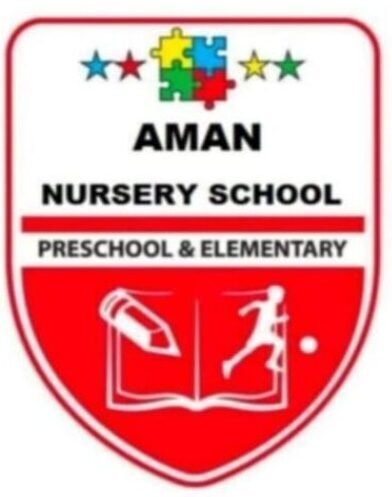Our Curriculum
A Lower Kindergarten (LKG) curriculum is designed for children typically aged 4-5 years, bridging the gap between nursery school and more structured education in upper kindergarten or first grade. The focus is on developing cognitive, social, emotional, and physical skills, along with laying the foundation for reading, writing, and math. Here’s a detailed outline of what an LKG curriculum generally includes:
1. Language and Literacy Development
- Skills Focus: Phonemic awareness, letter recognition (both uppercase and lowercase), early writing skills, and vocabulary expansion.
- Activities:
- Letter Recognition: Flashcards, alphabet charts, and letter tracing.
- Phonics: Identifying letter sounds and beginning sound-letter correspondence (e.g., “B is for Ball”).
- Early Writing: Practice forming letters, writing their name, and simple words.
- Storytime: Listening to stories, identifying key elements (characters, setting), and answering questions about them.
- Rhymes and Songs: Nursery rhymes to enhance listening skills and language rhythm.
2. Early Math Concepts
- Skills Focus: Number recognition (1-20), counting, basic addition and subtraction using objects, shape identification, and understanding size/measurement.
- Activities:
- Counting: Counting objects, using number lines, and counting songs.
- Shapes: Identifying and naming basic shapes (circle, square, triangle), and using shape-related puzzles.
- Patterns: Simple pattern recognition and completion using beads or blocks.
- Simple Addition/Subtraction: Using counters or fingers to introduce adding and subtracting small numbers (e.g., “If I have 3 apples and give you 1, how many are left?”).
- Comparison: Identifying big/small, tall/short, more/less.
3. Social and Emotional Development
- Skills Focus: Building friendships, following classroom rules, sharing, and understanding emotions.
- Activities:
- Group Play: Encouraging cooperative play, learning to share and take turns.
- Emotion Recognition: Storytelling or using puppets to discuss different emotions and how to express them.
- Classroom Roles: Helping with classroom duties, such as organizing toys or setting the table for snack time, to foster responsibility.
4. Physical Development
- Skills Focus: Developing fine motor skills (using pencils, crayons, scissors), gross motor skills (running, jumping), and hand-eye coordination.
- Activities:
- Fine Motor Skills: Tracing letters and shapes, threading beads, cutting paper, and coloring within lines.
- Gross Motor Skills: Outdoor play involving running, jumping, hopping, and skipping.
- Coordination Games: Playing with balls, bean bags, or balancing games to improve body coordination.
5. Creative Arts
- Skills Focus: Encouraging self-expression through art, music, and drama.
- Activities:
- Art Projects: Drawing, painting, crafting with paper, and clay modeling.
- Music and Dance: Singing songs, playing with musical instruments like tambourines or xylophones, and dancing to music.
- Role-Playing: Simple dramatization of stories or daily activities (e.g., pretending to be a shopkeeper or teacher).
6. Cognitive Development and Problem-Solving
- Skills Focus: Enhancing attention, memory, and basic reasoning skills.
- Activities:
- Puzzles: Simple jigsaw puzzles or shape sorters to improve problem-solving.
- Matching and Sorting: Activities that involve matching objects by color, shape, or size.
- Story Sequencing: Arranging pictures in the correct sequence to tell a story or event.
7. Environmental Science and Awareness
- Skills Focus: Understanding the world around them, basic nature studies, and awareness of the environment.
- Activities:
- Nature Walks: Exploring the outdoors to observe trees, plants, and insects.
- Simple Experiments: Exploring the concept of floating and sinking, learning about weather patterns (sunny, rainy), and observing how plants grow.
- Animal Study: Learning about different animals, their sounds, habitats, and characteristics.
8. Personal Hygiene and Independence
- Skills Focus: Learning basic hygiene practices and developing independence in self-care.
- Activities:
- Hygiene: Practicing hand-washing, brushing teeth, and cleaning up after meals.
- Self-Care: Encouraging independence in dressing, tying shoelaces, and packing their own school bag.
9. Introduction to Concepts of Time and Routine
- Skills Focus: Understanding time, routine, and sequencing.
- Activities:
- Daily Schedule: Following a set routine with morning circle time, snack time, nap time, and playtime.
- Days of the Week: Introducing the names of the days and basic concepts like today, tomorrow, and yesterday.
- Routine Charts: Visual schedules to help children understand the flow of the day.
10. Cultural and Moral Values
- Skills Focus: Understanding respect, kindness, and the importance of cultural diversity.
- Activities:
- Festivals and Celebrations: Introducing children to different cultural festivals, holidays, and traditions.
- Moral Stories: Using fables or simple moral stories to teach kindness, honesty, and empathy.
11. Introduction to Technology (Optional)
- Skills Focus: Developing basic digital literacy and understanding the role of technology.
- Activities:
- Interactive Educational Games: Using simple apps or tools to reinforce lessons in math, language, and creativity.
- Learning Devices: Introduction to tablets or computers for guided educational purposes.
This curriculum lays a solid foundation for future academic learning and overall development by blending structured learning with hands-on activities. Would you like specific activity suggestions for any of these areas?


